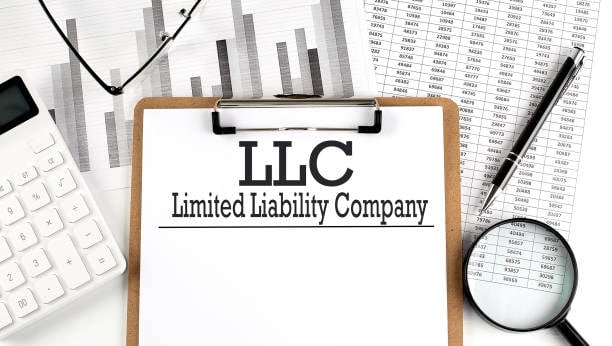
WHY YOU NEED A LLC
Do you need a separate business entity (LLC/Corp) for your business? The answer is YES! If you run a business as a Sole Proprietor or “DBA”, your personal assets are not protected and you are personally liable for the debts and obligations of the business. This means that a business creditor can come after your personal property (home, car, personal bank accounts) and we DON’T WANT THAT!
- Reserves Name In Your State
- Simple To Maintain
- Gives You Credibility
- Establish Business Credit
- Potential Tax Benefits
How Our Process Works

What do we do?
We handle the forms & filings. Just choose your service and complete the corresponding questionnaire and we’ll take if from there!

How long does it take?
Our standard in house processing time is 7-10 business days. Times vary from state to state. We provide you status updates on your order along the way!

What do you receive?
Once we receive your official state documents, we automatically send you a digital copy. You will receive official physical copies in the mail from the State.
Set Up Your Business In 10 Minutes Or Less!

LLC Start Up Package $129*
Our team of dedicated professionals will file your paperwork correctly to make sure you meet procedural requirements the first time you file, to avoid needless fees and delays.
- Preliminary Name Search
- Prepare & File Articles of Organization/Certificate of Formation
- Does not include state filing fee*
FAQs
-
Our team does an extensive name search in your State's database.
-
This document officially establishes your LLC as a separate legal entity in your State.
-
An LLC (Limited Liability Company) is a business setup that protects your personal assets like a corporation but is more flexible and simpler, kind of like a partnership or sole proprietorship. It helps keep your personal stuff safe from business problems.
-
It offers personal liability protection, flexible tax options, and easy management. Plus, it can make your business look more professional.
-
Your LLC name needs to be unique and include “LLC” or “Limited Liability Company.” Check your state’s rules to avoid names that are already taken or restricted.
-
Each state has its own rules, but you generally need to file some forms (like Articles of Organization), pay a fee, and choose a registered agent. Check your state’s website for details.
-
It’s a good idea to have one, even if it’s not required. It’s like a rulebook for how your LLC will run, covering things like management, how profits are shared, and what happens if things change.
-
An LLC can have as many members as you want, or it can be a single-member LLC if you’re going solo.
-
Starting an LLC usually involves a filing fee (which can vary by state) and possibly other costs like annual fees or taxes. Make sure to budget for these.
-
You can get an EIN (Employer Identification Number) from the IRS online for free. It’s like a Social Security number for your business, needed for taxes and opening a business bank account.
-
You might need to file annual or biennial reports and pay fees or taxes to keep your LLC in good standing. It’s like a membership fee to keep your business legit.
-
An LLC generally protects your personal assets from business debts and liabilities. But remember, if you mix personal and business finances or commit fraud, you might not be protected.
-
To make changes, you usually file an amendment with your state’s Secretary of State and update your operating agreement. You’ll also need to let the IRS and other agencies know about any changes.
-
Yes, if you’re doing business in other states, you might need to register as a foreign LLC in those states. This usually means filling out some extra forms and paying more fees.
-
You might need to file annual or biennial reports, pay any required fees, and keep up with state regulations. It’s like regular check-ups to keep everything running smoothly.
-
Check with local and state authorities to find out what you need. This can include things like a sales tax permit, health permits, or zoning permits depending on your business.
